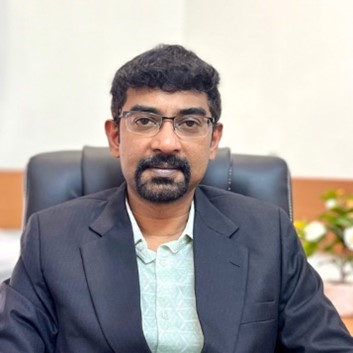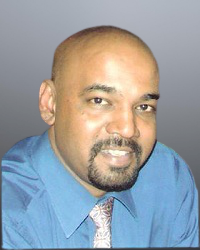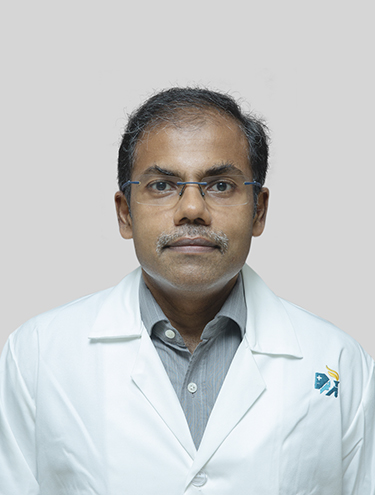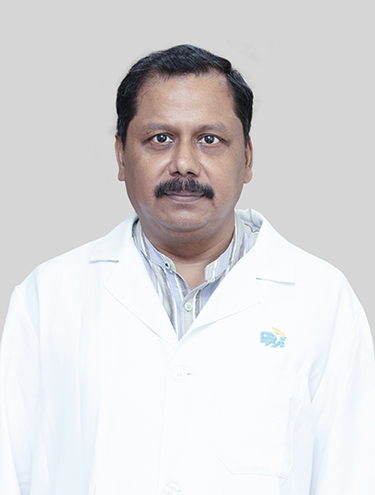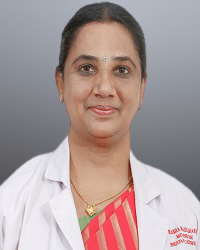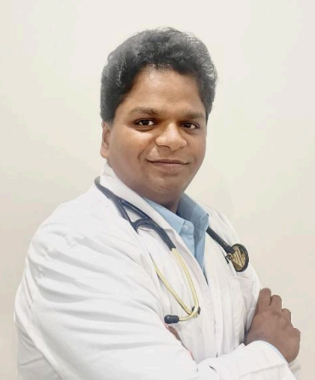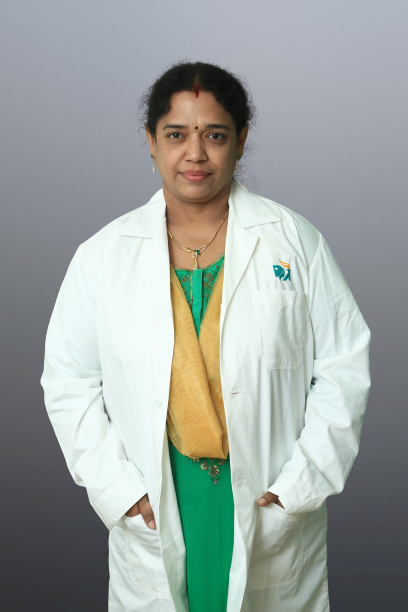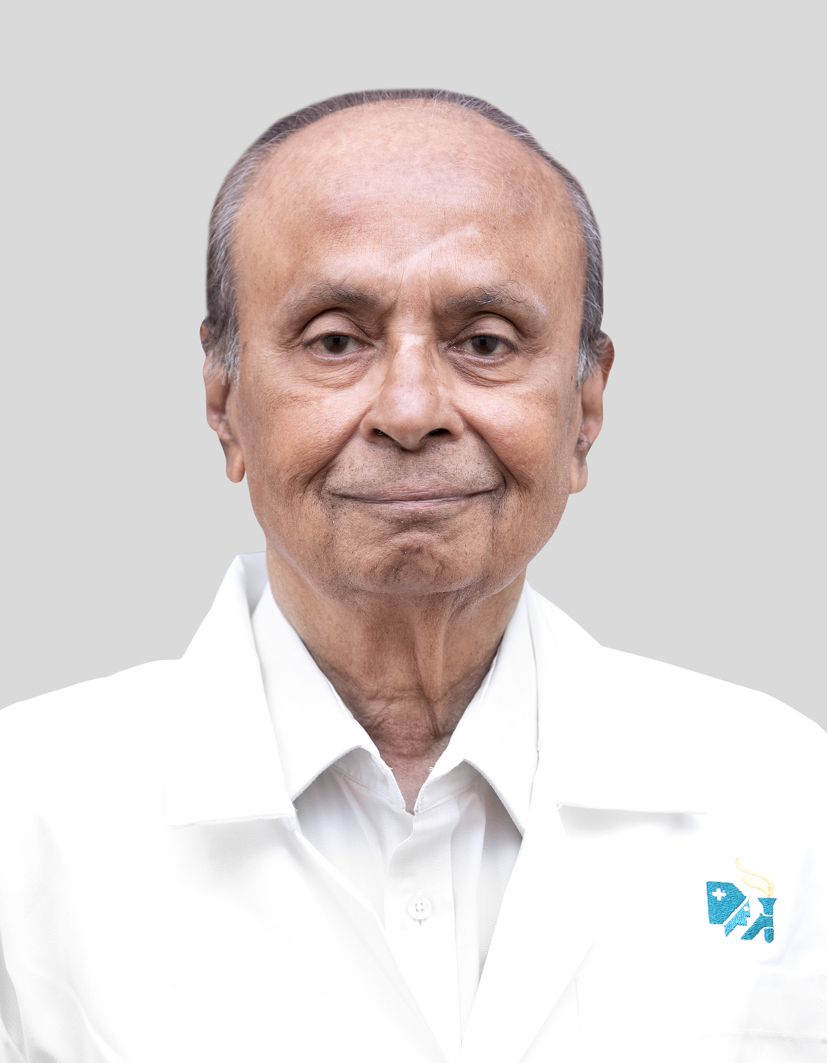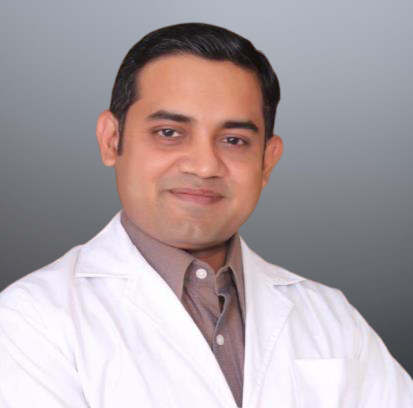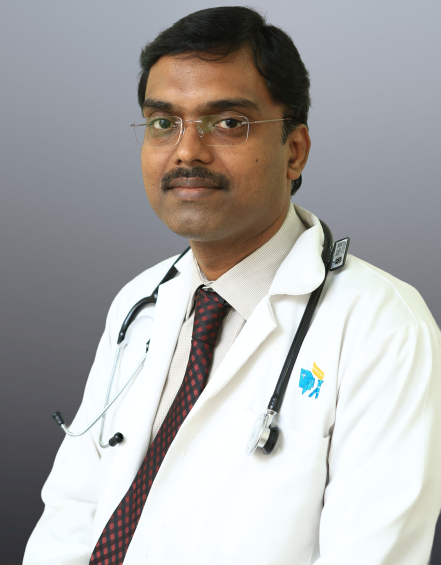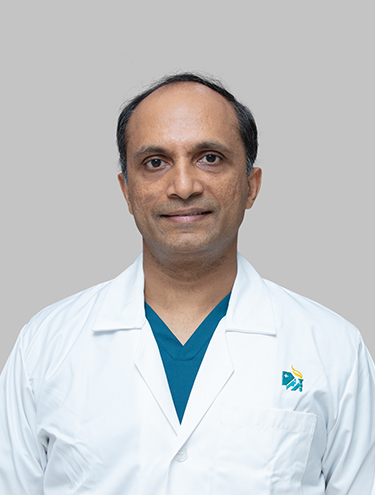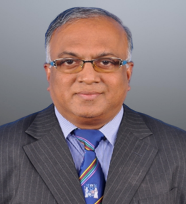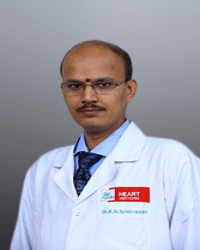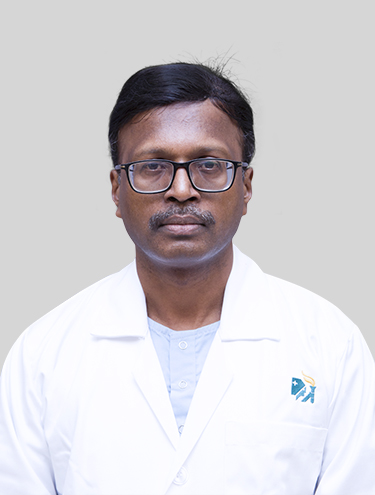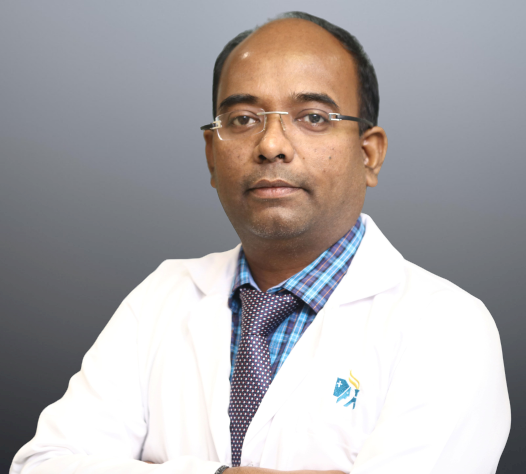Search Result: 67

Dr Abraham Oomman
MBBS, MD - General Medicine, DM - Cardiology, DNB - Cardiology
Registration No
339871
Language
English, മലയാളം

20 years experience overall

GREAMS ROAD & TONDIARPET & Greams Road , Chennai
MON- SAT(09:00 AM-11:00 AM)

Dr Ajeet Arulkumar S J
MBBS, Madras Medical College (1997-03), MD Kilpauk Medical College (2003-06), DNB (General Medicine)-2008, DM (Cardiology)- Sree Chitra Tirunal Institute for Medical science and Technology - (2009-2011), MRCP (UK)
Registration No
6177458
Language
English, shqiptar, हिंदी, മലയാളം, தமிழ்

15 years experience overall

Vanagaram , Chennai
MON- SAT, MON- SAT, MON- SAT(09:00 AM-05:00 PM)

Dr Anand Gnanaraj
MBBS, MD, DM, FNB
Registration No
261990
Language
English, தமிழ்

9 years experience overall

GREAMS ROAD & Vanagaram , Chennai
MON- SAT, MON- SAT(01:00 PM-04:00 PM)

Dr Arul Ebnezer Daniel
MBBS, MD, DNB CARDIOLOGY
Registration No
605426
Language
English, தமிழ், తెలుగు

10 years experience overall

Old Mahabalipuram Road , Chennai
MON- SAT(01:00 PM-04:00 PM)

Dr Arulnidhi Ayyanathan
MBBS, MRCP(UK), AB(US), MBA(US)
Registration No
108671
Language
English, தமிழ்

10 years experience overall

Greams Road , Chennai
MON- SAT, MON- SAT(12:00 PM-01:30 PM)

Dr Arumugam C
MBBS, MD(general Medicine), DM(Cardiology)
Registration No
1955639
Language
English, தமிழ்

16 years experience overall

Old Mahabalipuram Road , Chennai
MON- SAT, MON- SAT(11:00 AM-03:00 PM)

Dr Asha Mahilmaran
MD; DNB; DM
Registration No
127
Language
English, हिंदी

16 years experience overall

GREAMS ROAD & Poonamallee High Road & TONDIARPET , Chennai
MON- SAT, MON- SAT(09:00 AM-02:00 PM)

Dr Avinash Jayachandran
MBBS,MD,DNB
Registration No
6432101
Language
English

6 years experience overall

Alwarpet , Chennai
MON- SAT(10:00 AM-11:00 AM)

Dr Babu Ezhumalai
MBBS, MD, DM(Cardiology), FNB(fellowship in Interventional cardiology)
Registration No
4711904
Language
English, हिंदी, தமிழ்

18 years experience overall

Vanagaram & Vanagaram & Alwarpet & MRC Nagar , Chennai
MON- SAT, MON- SAT, MON- SAT(09:00 AM-04:00 PM)

MON- SAT(06:00 PM-07:00 PM)

Dr Cecily Mary Majella
MD, DM
Registration No
699445
Language
English, ಕನ್ನಡ

12 years experience overall

Alwarpet & MRC Nagar , Chennai
MON- SAT(05:00 PM-06:00 PM)

Dr D Vaidhyanathan
MBBS, MD, DM, FRCP(Ed) FRCP(G) Cardiology.
Registration No
7787
Language
English, தமிழ்

30 years experience overall

Poonamallee High Road & Greams Road , Chennai
MON- SAT, MON- SAT(12:30 PM-02:00 PM)

Dr Deepesh Venkatraman
MBBS; MD (Medicine); DM (Cardiology); DNB ( Cardiology ); AFESC
Registration No
2531305
Language
English

5 years experience overall

GREAMS ROAD & Annasalai & Poonamallee High Road & Vanagaram & Kotturpuram , Chennai
MON- SAT(08:00 AM-10:00 AM)

Dr Dhamodaran K
DM(Cardiology), FNB, FESC, FSCAI
Registration No
829853
Language
English, हिंदी, தமிழ், తెలుగు

16 years experience overall

GREAMS ROAD , Chennai
MON- SAT, MON- SAT(10:00 AM-04:00 PM)

Dr Harikrishnan P
MBBS,MD (General Medicine, India),MD (Cardiovascular Medicine, UK),MRCP ( London, UK) Certificate of Specialist Training in Cardiology/Intervention ( Cambridge,UK), Interventional Fellowship Certificate (Toronto, Canada), FRCP-Edinburgh, FSCAI-USA
Registration No
262055
Language
English, தமிழ், తెలుగు

25 years experience overall

Vanagaram , Chennai
MON- SAT, MON- SAT, MON- SAT(09:00 AM-01:00 PM)

Registration No
1227611
Language
English, ಕನ್ನಡ

8 years experience overall

Poonamallee High Road , Chennai
SUN- SAT(06:00 AM-11:00 PM)

Registration No
1226960
Language
English, தமிழ்

5 years experience overall

GREAMS ROAD , Chennai
TUE | WED- SAT(10:00 AM-10:30 PM | 12:00 AM-11:45 PM)

Registration No
1226964
Language
English, தமிழ்

6 years experience overall

Vanagaram , Chennai
SUN- WED | THU- SAT(09:00 AM-01:45 PM, 01:45 PM-05:30 PM | 09:15 AM-01:45 PM, 01:45 PM-05:30 PM)

Dr Joy M Thomas
M.B.,B.S., M.D. (General Medicine), MD (Biophysics D.M (Cardio) FRCP(Glasg) FACC, FHRS, FCSI
Registration No
2972559
Language
English, हिंदी, മലയാളം, தமிழ், తెలుగు

30 years experience overall

Vanagaram , Chennai
MON- SAT, MON- SAT, MON- SAT(09:00 AM-04:00 PM)

Dr Justin Paul G
MD.,DNB (Medicine) DM DNB (Cardio) FACC Senior Consultant Interventional Cardiologist
Registration No
4880612
Language
English, தமிழ்

2 years experience overall

Kotturpuram , Chennai
MON- SAT, MON- SAT(05:30 PM-06:30 PM)

Registration No
863541
Language
English

0 years experience overall

GREAMS ROAD , Chennai
MON- SAT, MON- SAT(10:00 AM-02:00 PM)

Dr Kanthallu Srinivasan
MD; DNB(CARDIO)
Registration No
19446
Language
English

11 years experience overall

GREAMS ROAD , Chennai
MON- SAT, MON- SAT, MON- SAT, MON- SAT(08:00 AM-04:30 PM)

Dr Kirubakaran
MBBS, MD, DNB(CARDIOLOGY)
Registration No
1484663
Language
English

5 years experience overall

Poonamallee High Road , Chennai
WED(03:00 PM-04:00 PM)

Dr M Kathiresan
MBBS, MD (Medicine),DM(Cardiology),FNB(Interventional Cardiology)
Registration No
4450375
Language
English, தமிழ்

20 years experience overall

Old Mahabalipuram Road , Chennai
MON- THU, MON- THU(10:00 AM-12:00 PM)

Dr Madhu Prabhu Doss Cr
MBBS., MD., DM(CARDIOLOGY).,
Registration No
1423136
Language
English, தமிழ்

21 years experience overall

Old Mahabalipuram Road , Chennai
MON- SAT, MON- SAT(01:00 PM-02:00 PM)
Frequently Asked Questions for Ablation Therapy in Chennai
Advantages of ablation therapy include its high success rates, minimal invasiveness compared to surgery, shorter recovery times, and potential to provide long-term relief. Disadvantages may include a small risk of complications, possible need for repeat procedures, and the need for specialised expertise to perform the procedure.
RFA stands for Radiofrequency Ablation, which is a type of ablation therapy that uses high-frequency electrical currents to heat and destroy abnormal tissue. It is commonly used in the treatment of tumours, liver conditions, and certain types of cardiac arrhythmias.
In some cases, ablation therapy for cardiac arrhythmias may slightly increase the risk of stroke soon after the procedure. However, this risk is generally low and can be minimised with appropriate medications and careful monitoring during and after the procedure.
During ablation therapy, the tissue is not physically removed. Instead, it is destroyed or scarred using various techniques such as heat, cold, or laser energy. The body’s natural healing process then takes over to absorb the damaged tissue.
Ablation therapy for the heart is a procedure used to treat abnormal heart rhythms. These are also known as arrhythmias. It involves using specialised catheters to scar small areas of heart tissue that are responsible for causing the irregular rhythm.
Ablation therapy and pacemakers are two different treatment options for heart conditions. The choice between them depends on the diagnosis. Both procedures have their risks and benefits, and it is best to consult with a specialist to determine which option is most suitable.
After ablation therapy, patients may be monitored for a few hours or overnight to ensure there are no complications. They may be prescribed medications to manage pain or prevent infection. It is important to follow all post-procedure instructions provided by the doctor.
The duration of ablation therapy can vary based on the complexity of the condition being treated and the specific technique used. It may take anywhere from 2 to 4 hours to complete the procedure.
Eligibility for ablation therapy depends on the specific condition being treated. It is also based on the overall health of the patient. A thorough evaluation by a specialist is necessary to see if a patient is a suitable candidate for the procedure.
The recovery time for ablation therapy can vary based on the individual and the specific procedure performed. In general, patients can expect to go home the same day or within 24 hours and resume normal activities within a few days to a week.
Preparation for ablation therapy may involve fasting for some time before the procedure, stopping certain medications, and undergoing various tests such as blood tests, electrocardiogram (ECG), or imaging scans to assess the condition being treated.
Ablation therapy is typically performed by an interventional radiologist, a cardiologist, or an electrophysiologist. These doctors have specialised training in using imaging techniques and catheters to perform the procedure.
There are different types of ablation therapy depending on the condition being treated. Some common types include radiofrequency ablation (RFA), cryoablation (using extreme cold), microwave ablation, and laser ablation.
The success rate of ablation therapy varies depending on the condition being treated. However, it is generally considered to be a highly effective treatment option.
Ablation therapy is a medical procedure that uses various techniques to destroy or remove abnormal tissue in the body. It is commonly used to treat conditions like heart arrhythmias, tumours, and abnormal uterine bleeding.
Related Procedures in Chennai
Related Treatments in Chennai
- Doctors for Arrhythmia Treatment in Chennai
- Doctors for Atrial Fibrillation Treatment in Chennai
- Doctors for Cardiomyopathy Treatment in Chennai
- Doctors for Coronary Artery Disease Treatment in Chennai
- Doctors for Heart Failure Treatment in Chennai
- Doctors for Ventricular Tachycardia Treatment in Chennai
Other Specialities in Chennai
- Best Urologist in Chennai
- Best Pulmonologist in Chennai
- Best General Physician in Chennai
- Best Endocrinologist in Chennai
- Best Cardiologist in Chennai
- Best Oncologist in Chennai
- Best Radiologist in Chennai
- Best Orthopedics in Chennai
- Best Hepatologist in Chennai
- Best Gynecologist in Chennai
- Best Dermatologist in Chennai
- Best Gastroenterologist in Chennai
- Best Psychologist in Chennai
- Best Ent Specialist in Chennai
- Best Nephrologist in Chennai
- Best Rheumatologist in Chennai
- Best Diabetologist in Chennai
- Best Psychiatrist in Chennai
- Best Neonatologist in Chennai
- Best Dentist in Chennai
- Best Dietitian in Chennai
- Best Haematologist in Chennai
- Best Pediatrics in Chennai
- Best General Surgeon in Chennai
Top Hospitals in India
- Hospitals in Ahmedabad
- Hospitals in Bangalore
- Hospitals in Bhubaneswar
- Hospitals in Bilaspur
- Hospitals in Chennai
- Hospitals in Delhi
- Hospitals in Guwahati
- Hospitals in Hyderabad
- Hospitals in Indore
- Hospitals in Kolkata
- Hospitals in Madurai
- Hospitals in Mumbai
- Hospitals in Mysore
- Hospitals in Nashik
- Hospitals in Noida
- Hospitals in Visakhapatnam
- Hospitals in Lucknow
- Hospitals in Bhopal
- Hospitals in Karur
- Hospitals in Kochi
- Hospitals in Nellore
- Hospitals in Trichy
- Hospitals in Kakinada
© Copyright 2024. Apollo Hospitals Group. All Rights Reserved.



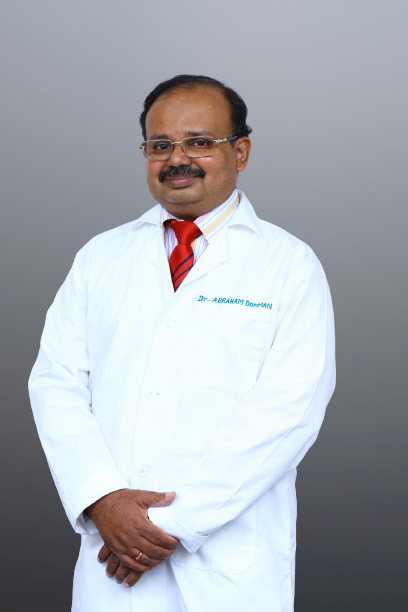
 Call Now
Call Now